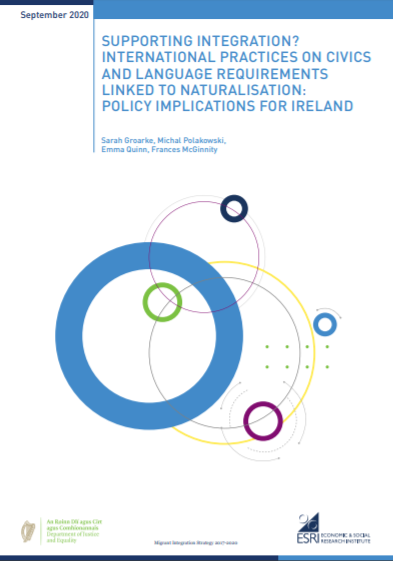Ireland’s Migrant Integration Strategy 2017-2020 states that the introduction of both civics and language tests for those seeking citizenship in Ireland will be examined. This research aims to contribute by investigating requirements linked to naturalisation in Europe. Drawing on a wide range of sources, including a related European Migration Network study, a mapping exercise was undertaken across 27 EU Member States and the UK. Case studies on Belgium, Finland, Portugal and the UK, as well as on three English-speaking countries outside of Europe, were compiled. The research finds that 24 Member States plus the UK require naturalisation applicants to show language proficiency. National practices and the level of competence required varies widely. 18 Member States plus the UK require applicants to show civic knowledge or proof of integration, again with much diversity in practices found.
Among its findings, the report highlights that no one-size-fits-all, but that each individual country-level approach to citizenship requirements must be seen as part of the wider citizenship and migration policy context. Consideration should be given to a wide range of complex issues before the introduction of such requirements, if at all, such as the format they may take and supports provided, for example for language learning. Also, that requirements should take account of the needs of vulnerable groups, such as those with low levels of literacy and people with disabilities. No comprehensive information is available on the cost of implementing such requirements. Evaluations of requirements were not found, therefore it is difficult to reach conclusions about the long-term effects of language and civic integration requirements linked to citizenship. Research does suggest that if the goal is to promote the societal integration of migrants, requirements should focus on learning opportunities such as courses, rather than on exams. Ex-ante analysis and ongoing evaluation are also essential and need to take into account diverse voices (employers, educators, the wider public and the migrant community).
This research was funded as part of the ESRI research programme on equality and integration.
See more;


